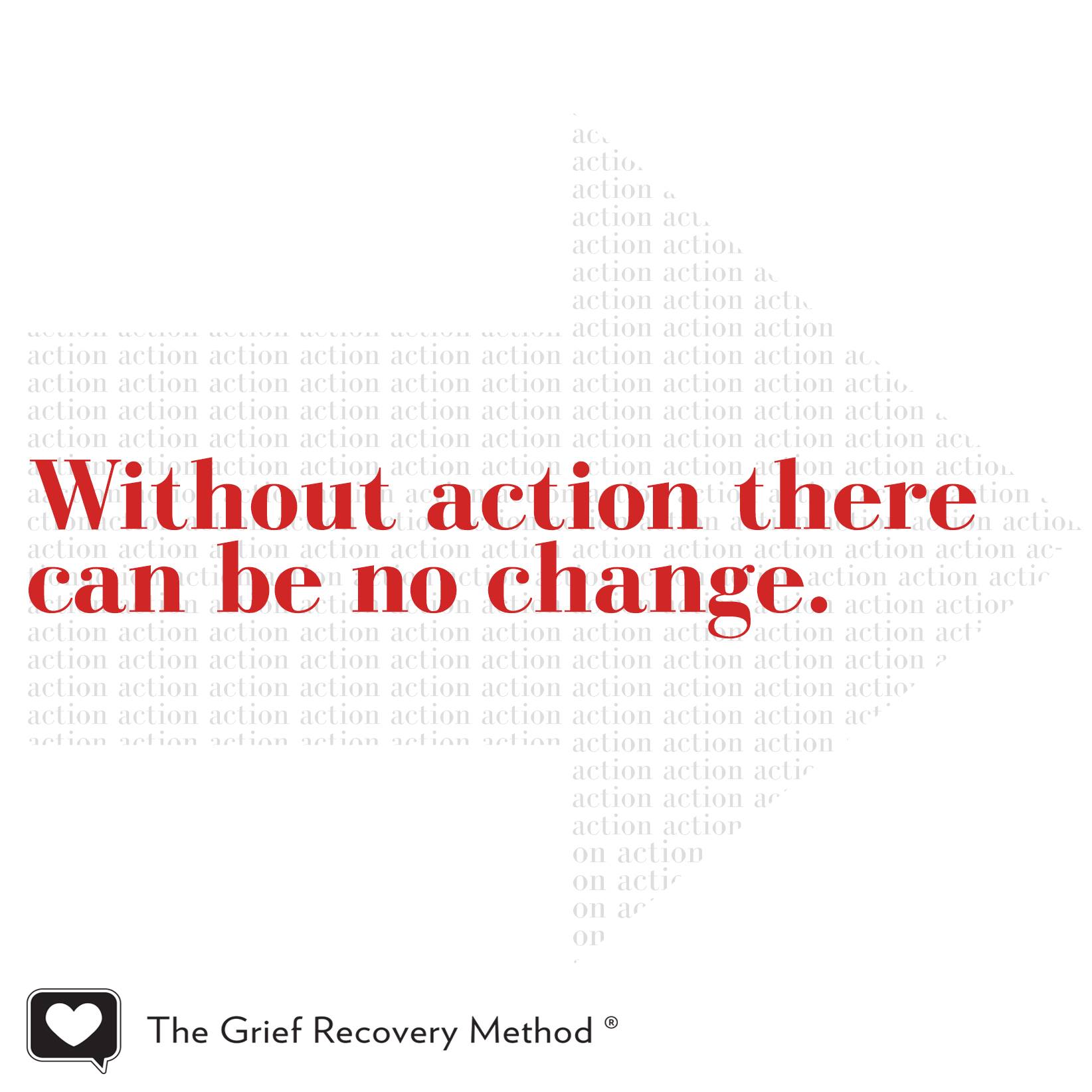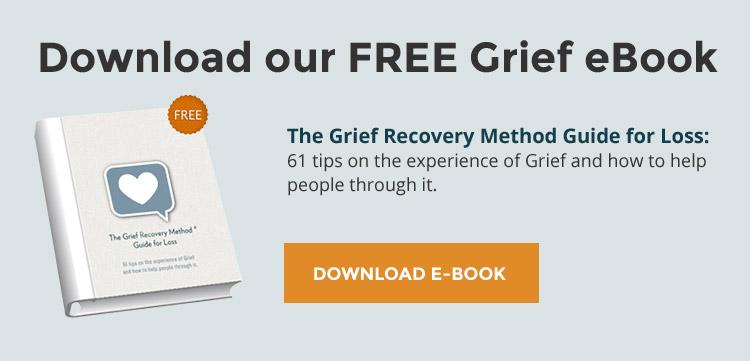Have you been through a breakup?
Have you retired or changed jobs?
Have you moved, lost a pet, or lost your faith?
Those are a few of the 40+ losses you might experience that cause grief.
What is Grief?
Grief is the conflicting feelings caused by the end of or change in a familiar pattern of behavior.
Here are some examples you might relate to:
- Do you remember feeling relieved when a romantic relationship ended even though you still missed parts of the relationship?
- Do you remember feeling excited to start a new job while simultaneously missing your old coworkers?
- Do you remember feeling thrilled for your kids when they went away to college, but still missed them being home?
Those conflicting feelings are grief.

Fortunately The Grief Recovery Method works on all losses whether your grief was caused by death, divorce, losing a pet or something else.
If reading this triggered a thought or feeling that you might have unresolved grief, please don’t hesitate to contact us. We never compare losses. All grief is felt at 100% no matter what the cause. We have solutions that will heal your broken heart.
We also suggest you visit our Grief Blog to search for articles on topics impacting your life, or you may want to read these:
The Best Grief Definition You Will Find
Grief: The 40+ Events That Can Be Triggers
7 Signs You're Experiencing Unresolved Grief



























Comments
Anonymous
Thanks for this article. "We never compare losses", is so reassuring.
Marissa Sese
Any type of loss or change will give you some form of grief. Some grief is more intense then others. When I broke up with my partner of five years was so difficult and I felt at the time that I was going to die. I was able to power through my sadness and go back to living life normally without feeling angry or upset about it. I miss her once in a while but it's not as intense as it was when we broke up two years ago. It definitely fades after a while. But when I lost my mother to lung cancer, I was so depressed even if I tried not to show how sad I was. I was losing weight and my sadness was very noticeable. Every time I think of her, it still feels like it was yesterday that she passed away. I don't think that will ever get easier for me. I miss my mother more and more every single day. Grief comes in all different levels.
Jodi
I would like to join this group.
Fiona martin
Not entirely sure what to write here , I am quite a private person. But, I have lost a child and even though it was awhile ago, I still don't feel 'healed' - whatever that might mean.
Anonymous
Fiona, we are so sorry for your loss. Our advice is to find a copy of The Grief Recovery Handbook by John James and Russell Friedman, read it and take the steps outlined in the book. If you have any questions at all, please call us at 800-334-7606.
Sandra McCleary
Sandra McCleary
Lois Hall
So - what to do? I hope you've taken the GRM class or done it one/one with a trained specialist. If so - you know the tools to use - probably having worked first on the person who died or who had the long term illness. You can now do the same thing with EACH of the other members of the family... those three siblings. Do the process with each of them, one at a time. Start with the relationship graph for one of them... figure out what are the significant statements you need to deliver to them (apologies/forgives/other significant statements) and then write your letter to that sibling. Do NOT read it to the sibling... but to that trained specialist... And then do the next sibling... and the next... again, NOT reading to the sibs, but to the specialist.
You can't change your siblings, or their relationships with the initial loved one ... or with you. You CAN change YOU.... by doing this work, you may come to see them in a new perspective, which won't change them, but it may change you -giving you a bit more patience with each of them... which in the end could (will?) result in them beginning to see for themselves, that they too need to do some work on the relationships in their lives... but again only/when they see that as a need... not because you do. But again, if your heart has cleaned out its communications... and you begin to understand their responses better... you at least will be ready to resume the relationship in a new, clearer way which will certainly help your heart... and will likely help theirs too.
Lois
Add new comment